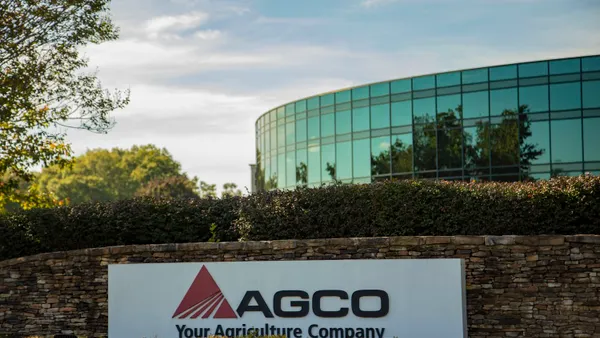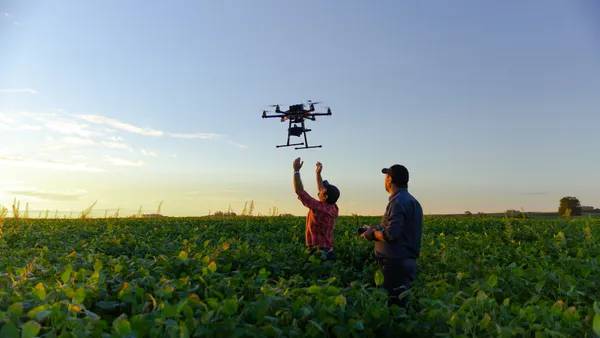Dive Brief:
-
The rapid rise of artificial intelligence is pushing some agriculture companies to publicly disclose the potential pitfalls of implementing the technology into their operations and products.
-
Archer-Daniels-Midland Co. highlighted in its latest annual report how the pace of AI adoption and development amid a complex regulatory backdrop opens up the company to technical, legal and opportunistic-related risks.
-
Seth Goldstein, equity analyst for Morningstar, told Agriculture Dive that he doesn’t see any imminent AI threat for ADM and other agricultural companies, but there are scenarios that could yield unfavorable results.
Dive Insight:
Generative AI is rapidly reshaping industries and forcing companies to contend with its rewards and risks.
According to a recent survey from technology platform Arize, approximately 1 in 5 Fortune 500 companies mention generative AI or large language models in their annual financial reports, with about 70% mentioning the tech's potential to be a security or competitive threat to the business.
The three industries most concerned about generative AI are media and entertainment, software and technology and telecommunications, according to the survey, but other sectors like retail, manufacturing and consumer packaged goods have also published risk disclosures to investors.
In ADM’s annual report, the company noted that AI could open it up to data privacy and security risks, missed innovation opportunities, deceitful or malicious communications and potential competitive disadvantages. However, according to Arize, many companies are listing just the risks, which may not accurately reflect their overall view on the technology.
In agriculture and food, ADM and its competitors are using generative systems to accelerate and assist with research and development of new flavors and ingredients, which may be extensive to develop or execute, Goldstein said.
Goldstein also noted that smart language systems could take over some of ADM’s grain-trading duties.
“They could have a whole trading desk replaced,” he said. “But again, I don’t see anything imminent that could make for potential risks.”
ADM declined a request for comment. The Coca-Cola Company, though a big proponent of AI, has expressed some concerns about artificial intelligence in its financial reports, mostly about third-party service providers that may not follow its governance framework on the technology.
One of the biggest concerns to food and agriculture companies when it comes to AI is data privacy and security. According to a survey by Retail Economics, 46.9% of food retailers identified legal and regulatory issues as a major barrier to investing in AI.











